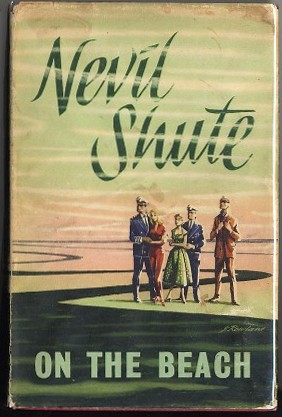She did eventually get used to it and was then very happy and excited about eating it, but I don't have any pictures or video of that part.
Heather turned 4 months old on Tuesday. So let's see, what's new in her life these days? She figured out how to use her knees, so now when she's standing on the bathroom counter, a lot of time is spent dropping down by bending her knees and then pushing herself back up. And she can still roll from belly to back, but she's still not very consistent about it. Sometimes she just gets annoyed and gives up.
She's found her feet and they are constantly in the air! She almost never lays her legs down anymore, which makes diaper changes interesting. And those little feet are frequently in her hands where she can keep better track of them. She hasn't quite figured out how to get them to her mouth yet, but I'm sure she will. Everything goes in her mouth these days.
She just started reaching for our faces a few days ago, which is pretty fun. Except when she's fussing and stretching out her hands to me, and then it's just heartbreaking. "Mama...Mama...please...fix it!" It's so pitiful.
Oh, and she now prefers being in her stroller, forward-facing, to being in her carseat in the stroller. She can see much better, and she seems to enjoy it much more. She's so small, though, that she looks ridiculous in it. The straps don't even tighten down enough to really fit her, and her feet just reach the edge of the seat.
Her four-month checkup was on Friday, and Dr. Daley said we should stop swaddling her. That's an ongoing adjustment. She seems to be doing alright at night, but her naps suck. Of course, her naps suck anyway, so it's not that big a change there, overall.
A couple weeks ago, she started nursing for much less time (5 minutes on each side instead of 10), so I emailed her pediatrician. (She also started spacing out her feedings, finally, up to 3 hours or so between them.) I've read that babies can become more efficient at nursing, allowing them to get it done much quicker, but with the concern about her weight, I wanted to check. Dr. Daley had us go in for a weight check last week, and she was 11 lbs. 8 oz., which put her down in the 12th percentile. The doctor still wasn't worried, though, so we just carried on as usual, only with more time on our hands.
Well, at her checkup on Friday, she had lost weight, down to 11 lbs. 2.4 oz.! That's the 5th percentile and not awesome at all. Dr. Daley put her on an iron supplement (apparently, iron deficiency causes poor weight gain because the metabolism has to run high to push the blood around faster to carry enough oxygen) and said to start her on solid foods! Eeep! So we went out and bought a highchair and feeding paraphernalia today. We'll start the rice cereal tomorrow. We'll let you know how it goes!
The good news is that whatever is causing the weight issues, it isn't affecting her development otherwise. She's totally on top of all the skills for her age, which is a relief.
Also, our tiny apartment is pretty much wall-to-wall baby stuff. Kyle just paced it out, and you can take one step to get from the stroller by the door, to the carseat, to the bouncer, to the glider, to the blanket on the floor, to the high chair, to the playmat. We need more space!

I've been on a bit of a post-apocalyptic fiction binge. I've just finished reading three cold-war-era, post-nuclear-war books.
 I started with Alas, Babylon by Pat Frank. Published in 1959, it details a small town's struggle to cope with the results of a U.S.-U.S.S.R. nuclear war. Much of the U.S. survives the war and enough government continues to exist to maintain order and rebuild the nation.
I started with Alas, Babylon by Pat Frank. Published in 1959, it details a small town's struggle to cope with the results of a U.S.-U.S.S.R. nuclear war. Much of the U.S. survives the war and enough government continues to exist to maintain order and rebuild the nation.The bulk of the story is concerned with the need to find safe drinking water, food, sanitation, and supplies; the loss of electricity; the lack of medicines; etc. The town creates a trading post where people can barter for supplies. Some townspeople breakdown and can't deal with it, some townspeople take advantage of the situation to loot, rob, and steal. The characters deal with reinstating order and protecting the town while waiting for contact from the outside world.
It was interesting and I really enjoyed it. But, I feel like it may have been a little too optimistic. Compared to the other books it feels lighthearted. Sure some things go poorly and people die, but overall things aren't so bad.
 In counterpoint is A Canticle for Leibowitz by Walter Miller Jr., published in 1960. It covers the rebirth of civilization after a nuclear apocalypse. Rather than a survival story, though, it's written in a much different style. The only other work like it I know of is Asimov's Foundation Trilogy (which were published in 1951, 1952, 1953--I wonder if Miller read them and borrowed the idea). Meaning, it's not a story of a character or set of characters, but it's a story of a civilization. The book covers about 1200 years starting many centuries past the nuclear apocalypse and eventually seeing civilization obliterate itself again in another nuclear apocalypse.
In counterpoint is A Canticle for Leibowitz by Walter Miller Jr., published in 1960. It covers the rebirth of civilization after a nuclear apocalypse. Rather than a survival story, though, it's written in a much different style. The only other work like it I know of is Asimov's Foundation Trilogy (which were published in 1951, 1952, 1953--I wonder if Miller read them and borrowed the idea). Meaning, it's not a story of a character or set of characters, but it's a story of a civilization. The book covers about 1200 years starting many centuries past the nuclear apocalypse and eventually seeing civilization obliterate itself again in another nuclear apocalypse.After the initial nuclear war, civilization collapsed and slipped into warring tribes and factions. A surviving scientist realized the threat to mankind's knowledge and worked with the surviving Catholic church to found a monastic order dedicated to seeking out and preserving knowledge. These monks dedicated the centuries to collecting, preserving, and copying what they could find of any and all of mankind's knowledge; waiting and hoping for a day when that knowledge would help mankind rebuild civilization.
Miller does an excellent job of allowing the history of the world and civilization's downfall to devolve into mythology that then become wrapped up into the remnants of Catholicism. It's a fairly intellectual-level book. It's not about action, emotion, or being absorbed by the characters, it's about the big picture.
 Filling in the gap between immediate survival and civilization's collapse is Nevil Shute's hauntingly effective On the Beach, published in 1957. In this version of nuclear holocaust the Southern Hemisphere is uninvolved in the nuclear war that encompasses the whole of the Northern Hemisphere. Set two years after the war we follow the dying struggles of the Australian continent. Having not participated in the war they have no direct losses, but the extreme radiological contamination in the atmosphere is slowly working its way to their continent.
Filling in the gap between immediate survival and civilization's collapse is Nevil Shute's hauntingly effective On the Beach, published in 1957. In this version of nuclear holocaust the Southern Hemisphere is uninvolved in the nuclear war that encompasses the whole of the Northern Hemisphere. Set two years after the war we follow the dying struggles of the Australian continent. Having not participated in the war they have no direct losses, but the extreme radiological contamination in the atmosphere is slowly working its way to their continent.
Two American nuclear submarines survived the conflict and, having placed themselves at the disposal of surviving governments, perform scouting missions in the Atlantic and Pacific oceans searching for survivors in the Northern Hemisphere. None are found. The fallout slowly works its way south killing everything in its path.
Even with two years knowledge of their fate the population begins to fray as normal behavior becomes meaningless in the face of having only months, then weeks, then days left to live. Slowly they lose contact with the remaining more-northern cities around the world as the contamination settles in. Knowing their fate the government has prepared suicide capsules and injections, to be dispersed as the end draws near, to allow the people to die painlessly.
The novel ends as the young mother and father and their infant daughter become symptomatic. As their sickness progresses they make the painful decision to inject their suffering baby and then take their own capsules, saving themselves from the final agonies of radiation-poisoning. It was heart-wrenching and incredibly effective (perhaps especially to someone with an infant daughter sleeping in the next room).
On the Beach is easily the most depressing, and one of the most powerful, books I've read. Yet even so, I'm not sure I'd say I enjoyed reading it, but it's definitely worth reading.
Heather officially has a favorite song—"Baby Mine" from Dumbo. She smiles every time I sing it to her, and it's adorable.
So we took Jess' car back to the shop and they said they'd look at it again without charging us anything until/unless they identified a problem.
They did a load test on the battery and, surprise, it wasn't providing enough current. (Well duh, it was dead and we had to jump start the car to get it to the shop.) So they put it on a charger for a few hours and then tested it again and it was fine. So they let it sit for several hours and then tested it again and it was still fine. So we had them keep it over the weekend and they tested it again Monday morning and it was still fine.
So we picked it up and came back home and it's been sitting since then until this afternoon when Jess needed to go somewhere again. And it started fine. So the problem seems to be fixed and the issue was just that the battery hadn't be charged up again after being dead originally.
Which just makes me wonder: When a customer brings in a car with a completely dead battery and you replace the alternator, shouldn't standard procedure be to hook the battery up to a charger to get it back to a full charge before having the customer pick up the vehicle?
Well, apparently not. So unless they did something else without owning up to it the residual problem was just an under-charged battery. Regardless, we didn't have to pay any more than we already had, so I at least don't have to be grumpy about that.
End of story.